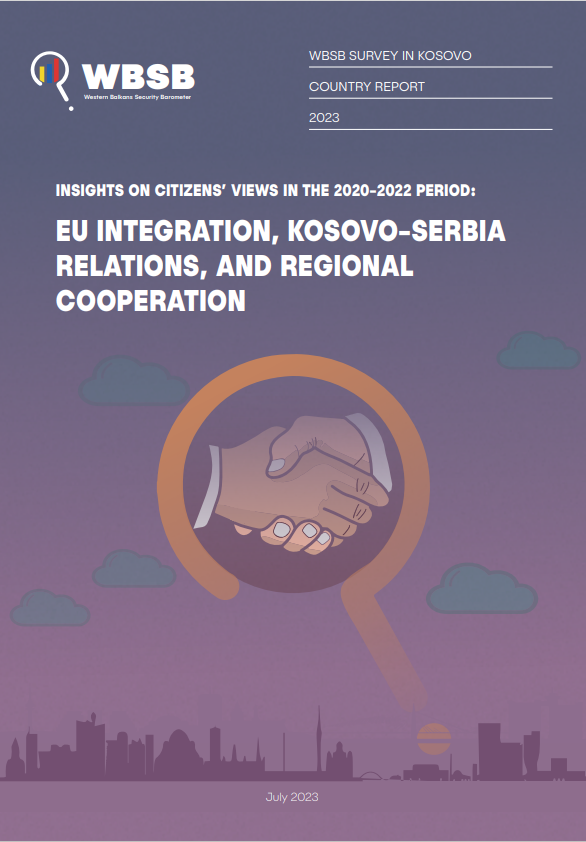21/07/2023

Kosovar Centre for Security Studies (KCSS)
National Endowment for Democracy (NED)
Dea Fetiu dhe Gramos Sejdiu
This report of Western Balkans Security Barometer analyzes the Kosovo citizens’ perceptions on EU integration, Kosovo-Serbia bilateral relations, and Regional Cooperation.
Over the course of our measurement period, the public perception of EU integration has consistently maintained a high level of support. In 2020, 92.5 percent of citizens expressed support, followed by 92.3 percent in 2021, and 94.2 percent in 2022. These findings indicate a stable and high level of support for the integration process, with no significant changes observed over the last three years. Turning to the citizens’ perceptions of the Kosovo-Serbia bilateral relations and the dialogue process, the second part of the report highlights an increase in support for the dialogue among Kosovo citizens. In 2021, 74.3 percent expressed their support to the dialogue, which rose to 83 percent in 2022. Furthermore, the chapter touches upon the shift of citizens’ perspectives on the impact of the dialogue on Kosovo – Serbia relations, with 40 percent of the respondents believing it had improved in 2022 compared to 14.6 percent in 2021.
A majority of respondents (68.8 percent) expressed support for regional cooperation in the Western Balkans, indicating a positive inclination among Kosovo’s population. Additionally, respondents consistently expressed support for free movement, information exchange, and the establishment of a common market for goods and workforce in the Western Balkans. When specifically asked about the Open Balkan Initiative, responses were very divided and varied over the years, with fluctuating levels of support and opposition.
Overall, the findings highlight the strong aspiration for EU integration and the continuation of the Kosovo – Serbia dialogue, with citizens understanding the complexity and challenges of both processes and the challenges ahead.
The data presented in the report derive from the Western Balkans Security Barometer (WBSB) survey. WBSB is a new regional initiative launched by KCSS in 2020, implemented in cooperation with the Belgrade Centre for Security Policy (BCSP) in Serbia and Center for the Study of Democracy and Governance (CSDG) in Albania, supported by the National Endowment for Democracy (NED). WBSB serves as an instrument to measure public perceptions in Albania, Kosovo and Serbia on different security-related issues. The findings demonstrate how citizens percept or are informed about the issues presented in this report. As such, the views presented in this report do not necessarily represent the views of the KCSS, BCSP, CSDG or NED.